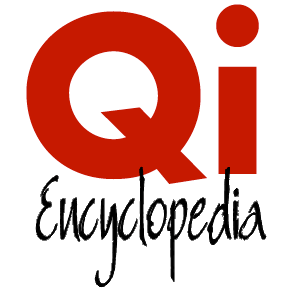
sponsor: Qi Journal
Navigation:
Portals
article: The Concept of Qi | date: 2016-01-04 15:09:29 | Find articles by this author
|
|
The Concept of QiBy Alex Holland, M.Ac., L. Ac.
A foundational principle of Traditional Chinese Medicine (TCM) is the concept of Qi (pronounced chee), commonly understood as the biological vitality of living organisms. In Oriental philosophy the concept of Qi is not restricted to living organisms, although it does represent a very specific functional and organizational process within biological systems. Qi is also conceived of as a universal force that moves planets and orchestrates the reactions of subatomic particles—it is the energetic template on which all existence is fashioned. Within the small window of biological systems, it is the underlying force that cradles our evolution and propels the organization and processes of everyday existence. Additionally, Qi is also the matter on which this force acts. Matter is simply viewed as condensed Qi. The Chinese character for Qi (氣) is derived from two separate pictographs that together create a more expansive meaning than either used alone. The original meaning of (气) means "vapor," "breath," or "weather" and denotes energy that is rising upward. The lower character (米) symbolizes "rice" that is bursting with vitality and life. These two pictographs form the character for Qi, which in human beings represents vital energy obtained through proper breathing and nutrition. Voices of Qi [1] lays a foundation for understanding TCM through the rich concept of vital energy—the universal force of Qi. The physical body that we affirm and treat in western medicine is but a small portion of the subject of healing in TCM. In TCM, we are not seen only as flesh and blood, but as energetic beings of thought, emotions, and spiritual aspirations as well. We are simultaneously spirit and matter, and spirit and matter are both simultaneously Qi. The energetic realms create and define a template through which our physical form is fashioned. Our dense physical body is but the final manifestation of a creative process that begins deep within the unseen world of Qi. Qi is the fundamental concept on which TCM is built. TCM practitioners weave together seemingly unrelated patterns of signs and symptoms uniting intuition within TCM concepts of body dynamics and disease processes. As an art Chinese medicine not only requires refined skills, but also calls forth expanded human awareness and compassion, as does any good painting, poem, or piece of music. Experience has lead me to believe that the art of TCM lies not only in the skill involved in practicing it, but also through the interpretation of the symbolism of the language. Cloaked in metaphor, this is where the mystery of Chinese thought and medicine is revealed and blossoms. Thus interpretation may be the greatest challenge, for written Chinese is itself a living art. Each pictograph, or character, symbolically represents an action, object, or concept. Open to many nuances of interpretation, we might say that Chinese medicine reveals its artfulness when we loosen our grip on the rational, linear mind and open ourselves to the intuitive, creative process. Voices of Qi was written to help us redefine and reevaluate the full beauty of who we are. It was written with the understanding that the quality of our thoughts and emotions are major determining factors in the health of our physical bodies. This truth alone puts an incredible responsibility on how we think and what we feel. In the words of the contemporary mystic, Carolyn Myss, from her book, Anatomy of the Spirit (Harmony Books, 1996): All our thoughts...carry emotional, mental, psychological, or spiritual energy [and] produce biological responses that are then stored in our cellular memory. In this way our biographies are woven into our biological systems, gradually, slowly, every day. The exploration of TCM takes us on a journey into the energetics behind the creation of health and disease. It is an exploration of the language of symbols and patterned relationships. It is a study in the way of Qi. Endnotes:1.^ This entry is taken from Voices of Qi: An Introductory Guide to Traditional Chinese Medicine |
